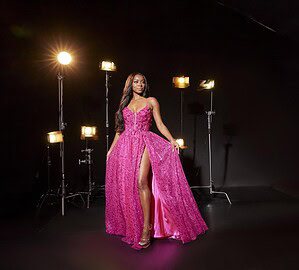
Designers place greater weight on astrological signs than current fashion trends when deciding on a New Year’s appearance for a festive gathering. Their interpretation is that clothing should contain the following qualities:
Naturalness
The fluffy creature disapproves of the decision to use synthetic artificial materials. Therefore, it is preferable to choose a bow for New Year’s Eve that is made of silk, cotton, wool, or another natural fabric.
Fake fur
However, it is preferable to choose synthetic fur that is either all one color or has a neutral pattern. For instance, a wild fox or the aggressive colors of other predators can deter a timid rabbit.
Luminous decorations
Sequin and pearl embellishments are welcome on clothing. On New Year’s Eve, they will gleam like the sun’s beams as they reflect off the sea.
“Water”
Satin, chiffon, or silk are appropriate materials because they resemble flowing water.
All of these materials are typically utilized to create stunning evening gowns, which are only distinguished by their thoughtful simplicity.
Color meaning

The vision of the fashion designer and the tastes of the bunny must be respected while choosing the color of an outfit for New Year’s gatherings. Let’s start by learning what the colors associated with the new year symbolize in Chinese culture.
Red
Only in the nation where the New Year emblem was created is this color used to mark the start of a new year. It connotes abundance, good fortune, joy, and love.
Pink
Because the hue is a variation of red, it also has a lucky connotation and offers protection from evil spirits.
Violet

Describes a cheerful color scheme and denotes divinity and immortality. In addition, young people relate color to romance and unending love.
Blue
The peaceful and gentle colors represent progress. It also stands for the start of recovery and new life.
Deep brown
Means, in the best sense, tenacity and determination.
Orange
As it represents grandeur and power and is linked to moral deterioration, it is not successful in China.
White
This hue connotes sadness in the East.



